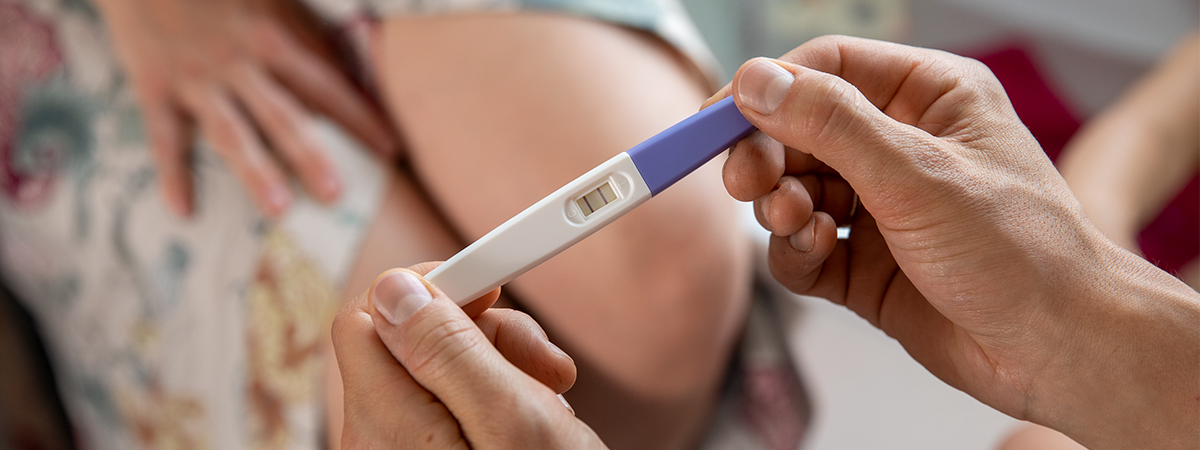Secondary infertility – difficulty getting pregnant again
After a while, you may find yourself longing for more children and a sibling for your first child. But sometimes it can be difficult to get pregnant again. In this article we discuss secondary infertility, what can cause it and the types of help and treatment that are available.
If you didn’t experience any problems conceiving your first child, it is easy to assume that it will be just as easy the next time. After all, everything went smoothly the first time, so why shouldn’t that be the case again? Unfortunately, things are not always quite that simple, and it is not uncommon to experience secondary infertility.
Why can’t I get pregnant again?
For many people who experience secondary infertility, the reasons are similar to those commonly associated with involuntary infertility. For example, you may have already had a problem which simply wasn’t detected the first time due to the fact that luck was on your side and you got pregnant anyway. There are different types of fertility problems, and while they rarely mean that you will be unable to have children at all, they can make it more difficult to get pregnant. Furthermore, since the last time you got pregnant, something may have happened to adversely affect your fertility. For example, some vaginal infections in women can affect the uterus, and sometimes – although it is not particularly common – complications after childbirth may make it more difficult to conceive a second child.
Age can affect secondary infertility
Age is another factor that can have an impact and make it difficult to get pregnant again. A person’s fertility decreases with age, in particular in the case of women but also with regard to men, and since you naturally are older than you were when you conceived your first child, this may play a role in making it difficult to get pregnant for a second time. Therefore, if you are having difficulty getting pregnant with your second child, you should not wait too long before seeking help, especially if you, as the one who will be carrying the child, are over 35 years of age.
Of course, a pregnancy requires sperm as well as an egg, and both need to be of good quality. So if you have changed partners since conceiving your first child, this could be a decisive factor if you are having difficulty getting pregnant for a second time.
What types of treatment are available?
Depending on your circumstances, it may be possible to receive help in the form of a fertility investigation and subsequent course of treatment via the public healthcare service, but of course it is necessary to find out what rules and regulations apply in the country where you live. Otherwise, it may be possible to apply for treatment via a private fertility clinic.
The sorrow of not having a sibling for your first child
When life does not turn out as you had hoped or imagined, it is natural to feel a sense of sorrow. It may feel strange, both for yourself and those around you, that there can be such great sorrow attached to the reality of not having another child, given that you already have a wonderful child to love and care for. But it is important to understand that feelings of sorrow, stress and frustration at the fact that your family will not be welcoming a sibling into the fold have absolutely nothing to do with any lack of gratitude – or love – for the child you already have! It is completely normal to feel sad, and not at all strange if all your efforts and struggles have an impact on your daily life. When it comes to the question of how long someone should continue trying to conceive a second child, the answer will, of course, be extremely individual from person to person, and factors such as age and causes of fertility problems must be taken into consideration, so in this regard you need to have a close dialogue with your doctor. For some, the journey will end with the joy of welcoming a second child into the world, but for others, it will be necessary to come to terms with the fact that, even though they have done everything they can, life simply has other plans, and there will be no more children. If you find yourself in the latter situation, it is natural to let your disappointment and sorrow have a place in life for a while – as human beings, we often need to grieve before we can move on. And after grieving for a while over the fact that life hasn’t turned out quite as you had hoped, you will probably find it easier to re-focus on living in the present with the child you already have and love!
Growing up as an only child
You may feel sad for your child’s sake that he or she will not have any siblings, but it may be comforting to know that there is nothing to suggest that growing up as an only child is in any way inferior to life in a family with siblings. Sure, siblings can be fun, but they can also be tiresome and can sap parents’ stamina and energy. And sure, siblings can be great playmates, but they can also be bitter enemies! It is important to realise that your child’s childhood will in no way be worse because there are no siblings around. For children, the most important thing is to have adults they can rely on and create relationships with, and the opportunity to play with and get to know other children, firstly at preschool, and then at school.
Please note that all information above is based on Swedish recommendations.



